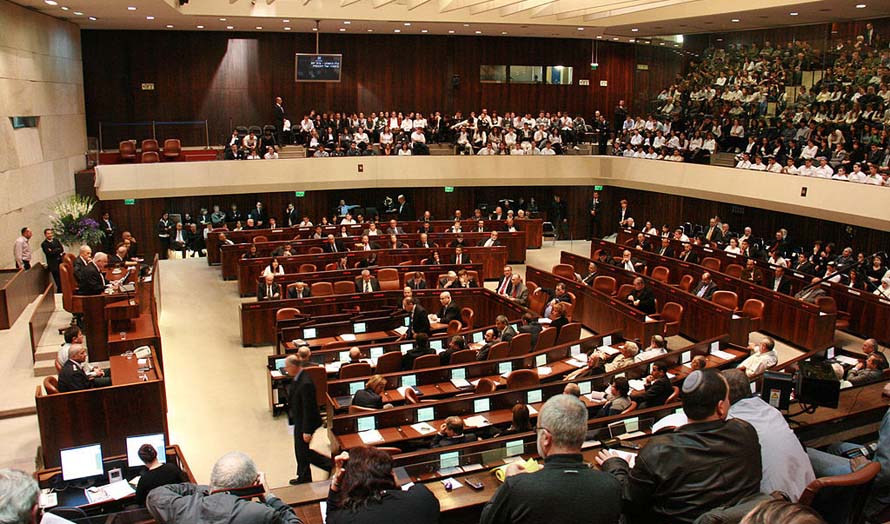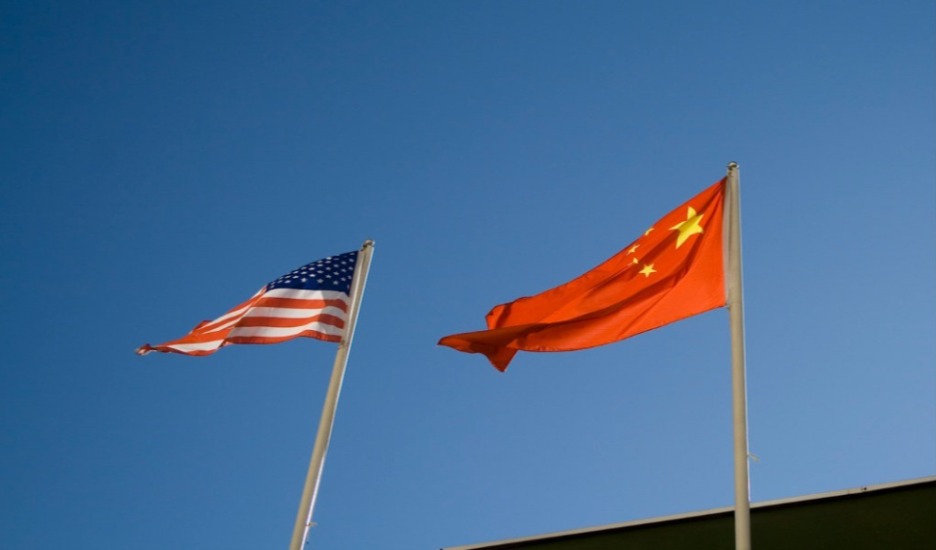Fact and Fiction About the Amendment of the Israeli Supreme Court’s Jurisdiction Over West Bank Cases
The Israeli legislature has taken another step toward blurring the lines distinguishing the Israeli legal system from the one that exists in the West Bank. The Knesset recently passed an amendment that transfers original jurisdiction over certain cases concerning the West Bank from the Supreme Court of Israel (in its capacity as the High Court of Justice) to the Administrative Affairs Court in Jerusalem (a subdivision of the Jerusalem District Court).

Published by The Lawfare Institute
in Cooperation With

The Israeli legislature has taken another step toward blurring the lines distinguishing the Israeli legal system from the one that exists in the West Bank. The Knesset recently passed an amendment that transfers original jurisdiction over certain cases concerning the West Bank from the Supreme Court of Israel (in its capacity as the High Court of Justice) to the Administrative Affairs Court in Jerusalem (a subdivision of the Jerusalem District Court). The amendment’s proponents, chiefly the right-wing Jewish Home party, have publicly asserted that it would make it more difficult for the Supreme Court to order the removal of illegal West Bank outposts and settlements. But a look at the amendment’s language reveals that it actually does something quite different.
Background
To understand the new amendment, one must first understand the unusual structure of administrative adjudication in Israel. Israel inherited the institution of the High Court of Justice (HCJ) from the British Mandate. The Mandate-era Supreme Court, dominated by British judges, was the only court with jurisdiction to hear administrative petitions against the government. Lower courts with predominantly local judges were denied the power to review the Mandatory government’s actions. In 1948, the unique institution of the High Court of Justice was carried over to the newly established Israeli legal system and embedded in the Israeli Supreme Court. From 1948 until the early 2000s, the Supreme Court, in its capacity as the HCJ, had original jurisdiction over all administrative cases. 
After 1967, the HCJ extended its jurisdiction to cases brought by Palestinians from Gaza and the West Bank against Israeli government and military action. The court did so despite the fact that Israeli law does not apply in those territories, which are governed by a mix of old local law, military law and the international law of belligerent occupation. The court grounded this move in an interpretation of a unique provision in a constitutional norm—Israel’s Basic Law: The Judiciary—rather than ordinary Knesset legislation. Section 15 of the Basic Law authorizes the HCJ to issue “remedies for justice” in matters that do not fall within the jurisdiction of any other court or tribunal. For years, the government has not objected to this expansion of judicial review to Gaza and the West Bank, and the HCJ has adjudicated thousands of challenges to government action in those areas.
A peculiar state of affairs emerged. Until the 2017 enactment of the Settlement Regularization Law—the first time the Knesset purported to regulate property rights in the West Bank directly—the separation between the Israeli legal system, including the Israeli court system, and the legal system in the territories was preserved. But Palestinian residents of the territories could receive judicial review of their cases at the HCJ.
In 2000, the Knesset passed the Administrative Affairs Courts Law in an effort to reduce the heavy workload of the Supreme Court. The reform aimed to gradually transfer administrative cases from the HCJ to lower courts. The law established specialized administrative affairs courts within ordinary district courts (the intermediate courts in the Israeli system). These administrative courts were granted jurisdiction over certain categories of cases specifically outlined in the law—primarily run-of-the-mill administrative petitions and appeals on issues such as immigration, education, local authorities and public tenders. The Supreme Court became an appellate court on these matters. The law, like all other Knesset legislation prior to 2017, did not apply to the West Bank.
At the same time, the Supreme Court retained its control over administrative adjudication. The law preserved the HCJ’s original jurisdiction over the most consequential petitions in each category transferred to the administrative affairs courts, such as rulemakings, decisions by government ministers and national policies. Section 6 of the bill allows an administrative court to send a case directly to the HCJ if it finds a matter particularly important, sensitive or urgent. Furthermore, the HCJ has held that it continues to have parallel jurisdiction over matters transferred to the administrative courts. In other words, the HCJ can choose to exercise original jurisdiction as a court of first instance even in matters that have been relegated to the administrative courts.
The New Amendment
The new amendment expands the Administrative Affairs Courts Law to include certain cases pertaining to the West Bank. For the first time, the Knesset extended an ordinary jurisdictional statute to that territory. The amendment provides that three categories of administrative petitions and one category of administrative appeals pertaining to the West Bank—which the HCJ had previously adjudicated in the first instance—will now be transferred to the Jerusalem Administrative Affairs Court. That includes petitions concerning freedom of information, planning and construction, and freedom of movement. Importantly, not every administrative case falling within these categories has been transferred from the HCJ. The amendment lists specific authorities and types of decisions within each category.
In large part, the category of cases involving planning and construction motivated this amendment. The Israeli right has harshly criticized the HCJ for ordering the evacuation and demolition of a number of Israeli West Bank outposts and settlements built illegally on private Palestinian land. Recently, this has included the highly publicized cases of Amona and Netiv Ha’avot. As one of us (Chachko) explained in a previous Lawfare post, the court largely applied the administrative law framework governing enforcement of West Bank planning and construction law in these cases, with minimal references to the international law of belligerent occupation. The HCJ has held the government to its own commitment to prioritize the demolition of illegal construction on private Palestinian land, while allowing it to retroactively issue permits for construction on public lands.
This longstanding equilibrium has been undermined by the current government’s push to “legalize” all outposts and settlements. A key component of this effort is the Settlement Regularization Law, which allows for the expropriation of private Palestinian land in favor of Israeli settlements. (A constitutional petition against the Regularization Law is currently pending, and the HCJ has issued an injunction against the Law’s implementation.)
Against this backdrop, proponents of the new amendment declared that it would take outpost and settlement cases away from the HCJ. They argued that the amendment would reduce the workload of the Supreme Court and allow for a more thorough factual assessment of the status of disputed land based on evidence that could not be properly assessed under the HCJ’s procedures. Therefore, they maintained, the amendment would fix what, in their view, was a disparity between how land disputes in the West Bank have been adjudicated compared to land disputes within Israel’s sovereign territory, affording settlers the same level of access to courts that other Israeli citizens enjoy.
But as a close reading of the amendment shows, this is not what it actually does.
First, the amendment does not take any cases away from the Supreme Court. The cases transferred to the administrative court would still reach the Supreme Court on appeal. But even more importantly, the amendment appears to preserve the HCJ’s original jurisdiction over some of the most contentious cases—potential future petitions of Palestinians and NGOs seeking the demolition of illegal construction on private Palestinian land in settlements and outposts.
For example, the amendment does not transfer original jurisdiction over petitions pursuant to the 2003 Unauthorized Structures Order (Judea and Samaria) from the HCJ to the administrative affairs court. The 2003 order allows the military commander in the West Bank to issue a decree delineating unauthorized construction in a certain area. Within eight days of the decree’s issuance, all property and persons must be evacuated from that area. If the property is not evacuated voluntarily, security forces may then demolish and remove it.
The Unauthorized Structures Order is one of the central measures the military commander has relied upon for enforcement against illegal outposts. A consequential report on illegal outposts submitted to the Sharon government in 2005 described the order as a “the key legal instrument for outpost removal”. The order has been applied in more recent cases as well, including the Migron outpost removal saga, and the case pertaining to the six outposts of Mitzpe Lachish, Givat Assaf, Ramat Gilad, Mizpe Yizhar, Givat Ha’Roeh, and Ma’ale Rehavam, which the HCJ decided in late 2014. These types of cases will continue to go to the HCJ in the first instance.
Moreover, the new amendment excludes decisions of the military commander in the West Bank. The HCJ continues to have original jurisdiction to hear petitions against such decisions. Most outpost and settlement-removal petitions list the defense minister and the military commander in the West Bank as primary respondents and seek to compel the latter to exercise his enforcement authority and remove illegal construction—so these cases, too, would likely continue to go to the HCJ in the first instance.
We should note that this analysis might be affected by the shift in the current Israeli government’s policy with regard to enforcement against illegal construction in the West Bank. The Jewish Home party has pushed the government to redouble its efforts to “legalize” illegal construction in settlements. (Of course, such “legalization” would not affect the legality of such construction under international law.) To that end, the party pushed for greater reliance on local planning and construction law—which is covered by the new amendment—and other legal tools to issue retroactive permits for such construction. (A comprehensive report commissioned by the Israeli government, submitted in February, explores all available avenues for “legalization” under West Bank law and outlines concrete recommendations.) Likewise, the Jewish Home party has pushed back against the use of enforcement measures such as the Unauthorized Structures Order to remove illegal construction.
Litigation around planning and construction matters at the administrative court might therefore become more significant. But even if it does, the Supreme Court retains its reviewing role as an appellate court.
Second, the amendments’ proponents claim that shifting cases to the administrative court would allow for more rigorous judicial assessment of facts. But this is also inaccurate. Administrative affairs courts operate according to HCJ procedures, which are based on affidavits. There are no witnesses or cross-examination, and the HCJ often bases its factual findings on the information provided by the government. Administrative affairs court proceedings are similarly based on affidavits, and witnesses are rarely heard and cross-examined in court. (Knesset legal adviser Gur Blaigh highlighted this point during the deliberations over the amendment in the parliamentary Constitution, Law and Justice Committee. ) Therefore, it is unlikely that the administrative court would apply rigorous evidentiary procedures akin to those that applied in ordinary civil court. In fact, the procedures applied would be similar to those used before the HCJ.
Critics of the amendment have argued that it violates the rights of Palestinians to judicial review of their cases. This argument, however, is not particularly powerful, at least in theory. The amendment only changed the vertical division of labor between the HCJ and the Jerusalem administrative court. It adds an additional layer of review, while the Supreme Court retains the power to weigh in both as an appellate court and as a court of first instance when it comes to the most sensitive issues. Palestinians and NGOs acting on their behalf would still be able to access Israeli courts, although they would probably incur greater legal expenses in doing so. They might even benefit from the extra layer of judicial review: Whereas in the current situation their cases would begin and end at the HCJ, two opportunities to make a case are arguably better than one from a litigant’s perspective. The political environment aside, it is difficult to argue that litigants have a right to bring their cases directly to the highest court.
In sum, the claims that the new amendment would help reduce the HCJ’s workload and increase the efficiency and accuracy of judicial decisions seem to largely be a pretext. And the amendment falls short of the Jewish Home’s promise to take settlement-removal cases away from the HCJ. So what is this amendment really about?
As leaders of the Jewish Home party, including Justice Minister Ayelet Shaked, have repeatedly stated, the amendment primarily serves to advance the so-called “normalization of Judea and Samaria.” It deviates from the longstanding convention that Knesset legislation only applies within Israel’s sovereign territory. Legal adviser Bligh underscored this issue during the parliamentary committee deliberations, noting that the amendment would be the first time that Knesset legislation specifically refers to Jordanian planning and construction law applicable in the West Bank. Bligh reiterated the Israeli attorney general’s view that the Knesset should not deviate from the principle of separation between the Israeli legal system and the one that exists in the West Bank through ad hoc legislation. Rather, Bligh argued, the comprehensive, systemic implications of such deviation must first be considered.
In our view, this is the most potent argument against the amendment. Like the Settlement Regularization Law before it, albeit to a lesser degree, the amendment advances the creeping, de facto annexation of the West Bank to Israel. For the Knesset to extend its legislation to the territory of the West Bank without also allowing the area’s Palestinian residents to participate in the democratic process is inconsistent with fundamental democratic principles. At some point, this gradual movement toward annexation will come into conflict with international law, which prohibits the unilateral annexation of territory.
Conclusion
In virtually any other context, jurisdictional adjustments within a national court system would probably not be deemed particularly noteworthy. In the Israeli-Palestinian context, however, this seemingly technical legal measure is yet another site of a raging political battle over the nature of the Israeli presence in the West Bank.
The amendment falls short of some of the achievements its proponents have boasted about. In particular, it largely preserves the HCJ’s original and appellate jurisdiction over the most contentious settlement and outpost removal cases. Nevertheless, it does continue an alarming trend of Knesset legislation that undermines the fundamental tenets of the legal relationship between sovereign Israel and the West Bank.




.jpg?sfvrsn=5a43131e_9)

